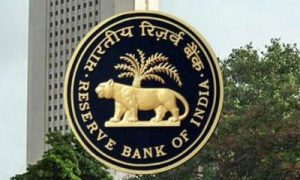Study finds that among Type 2 diabetics, perception of sugar consumption might affect blood sugar readings more than actual intake. Experts say it’s inconclusive.
New Delhi: Blood glucose levels in patients with Type 2 diabetes respond more to the perception of how much sugar is being consumed, rather than the actual intake, a study by Harvard University researchers has found.
As a result, the researchers suggest that psychological programmes may be important for diabetes management, alongside medications, diet and exercise.
The study, conducted by Chanmo Park, Francesco Pangini and Ellen Langer, published on 24 September, states: “The findings provide pressing evidence for the psychobiological model of chronic disease, suggesting that psychological intervention programmes may be important for diabetes management, beyond current programmes in which Type 2 diabetes is managed through diet, exercise, and medications only.”
How the study was conducted
The study was conducted on 30 participants over the course of a week — with participants visiting the laboratory twice at three-day intervals.
The participants were given one of two beverages to consume. Both were actually identical with 62 grams of sugar, but had labels indicating different sugar levels — one said zero grams, while the other read 124 grams.
The participants’ starting glucose point was also recorded to ensure that it was the same.
The results showed that blood glucose profiles aligned more with what the participants had actually believed from the label of sugar contents — the figure was low in participants when they consumed the beverage with the label showing zero sugar, and high for participants consuming the beverage with the 124g label.
“That is, blood glucose values changed according to the participants’ expectations (either low or high sugar content), and not to the amount of sugar they actually consumed,” the study concludes.
Classical way of understanding
The study says while the biomedical model primarily assumes that blood glucose levels rise and fall as time passes after sugar intake, these findings show that “the subjective perception rather than the objective passage of real time has been shown to determine blood glucose level changes in people with type 2 diabetes”.
The study targets the most widely accepted factor in explaining blood glucose fluctuations and tries to establish that psychology mediates the effect on blood glucose levels in people with type 2 diabetes.
It says the findings show the “inadequacy” of the classical ways to explain the metabolic and physiological reactions to food intake in diabetics suggested by the biomedical framework. It also calls for new future research in diabetes management, and puts the focus on the influences that psychological processes exert on chronic conditions like diabetes, cardiovascular disease and chronic obstructive biopulmonary diseases.
“These findings challenge the mainstream assumption that natural biological and physiological metabolic homeostasis processes require sufficient insulin to allow glucose to return to normal ranges. This is in line with other works that found no evidence that insulin action determines the steady-state level of glucose,” the study says.
Limitations
However, the study admits to having certain limitations. It does not say whether these findings hold true for long term efficacy, and states that no data is available to compare the findings to generalise for the overall population.
Experts that ThePrint spoke to said while the study is interesting, it can’t be taken as conclusive.
“It’s a small study in a controlled environment. It is fascinating and interesting how it shows glucose response based on perceptions,” said Dr Ambrish Mithal, chairman and head of endocrinology at Max Healthcare, Delhi.
“Psychological factors do play a role — for instance, in patients with depression, managing blood glucose levels becomes very difficult. But that is also because often people with depression don’t follow guidelines properly. So, while this study gives clues to conduct new research linking biology and psychology in managing blood glucose levels, it cannot be considered as conclusive,” Mithal added.





































